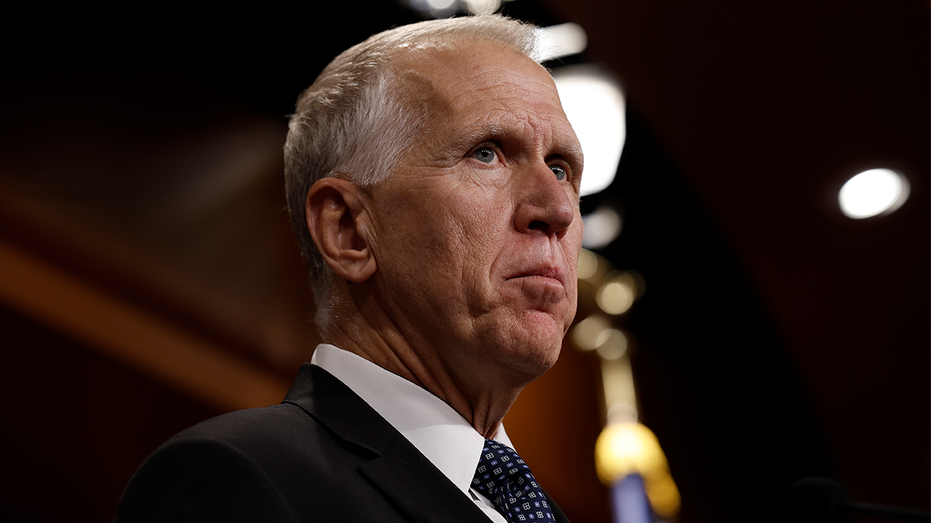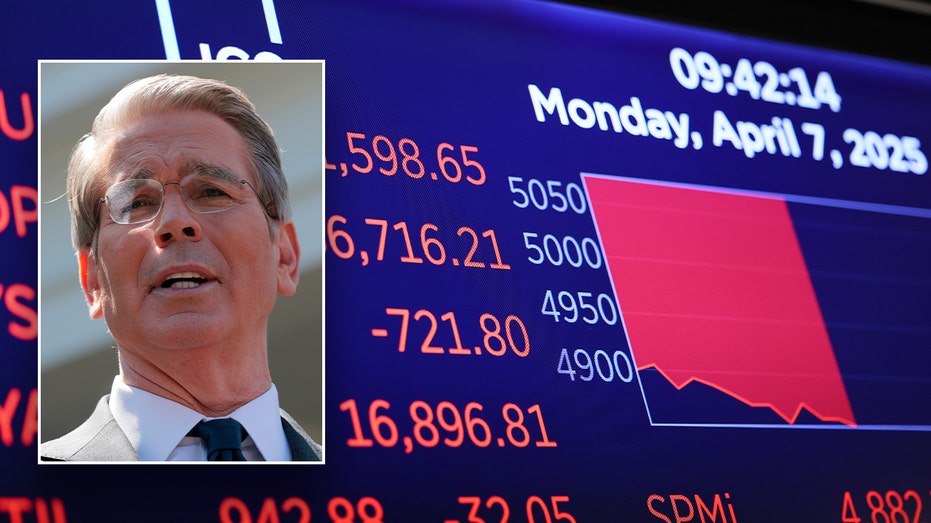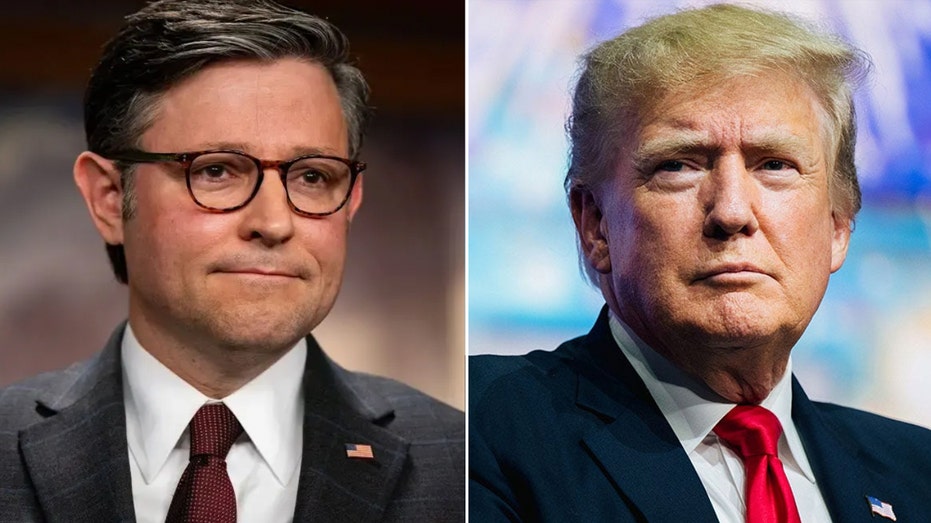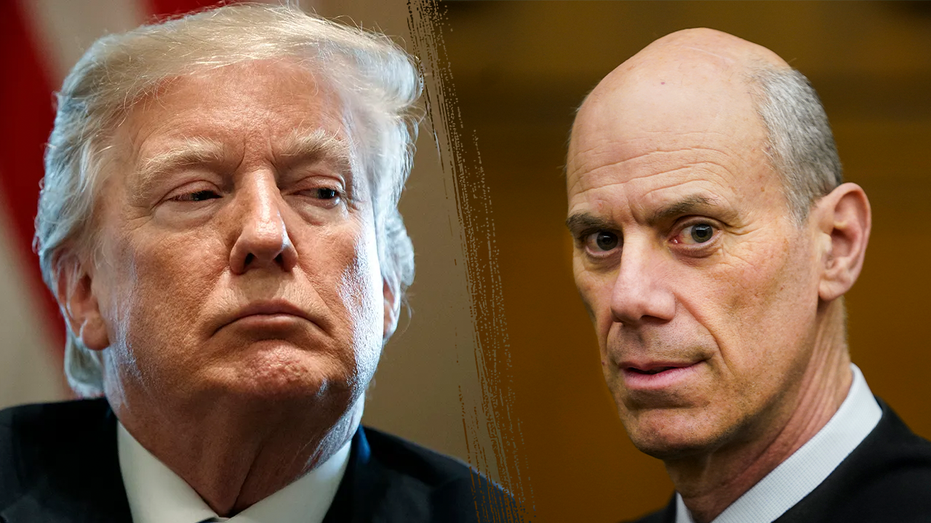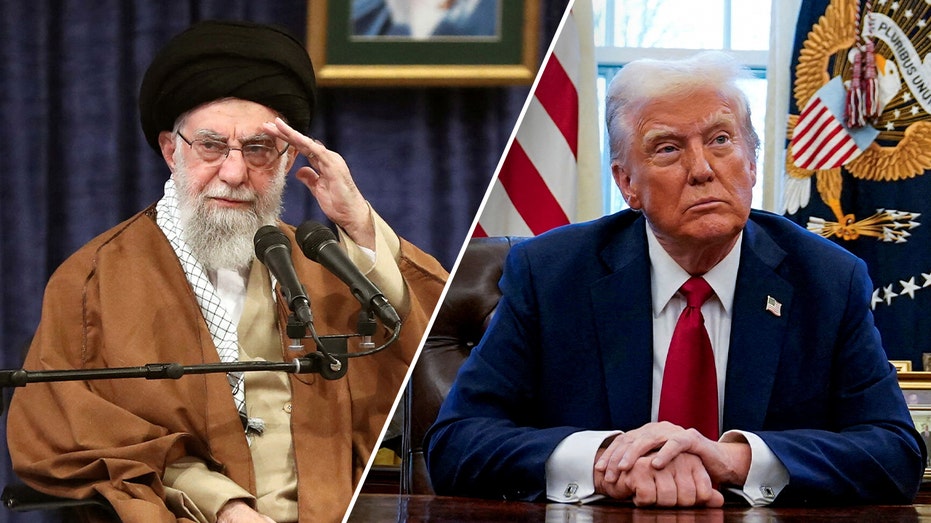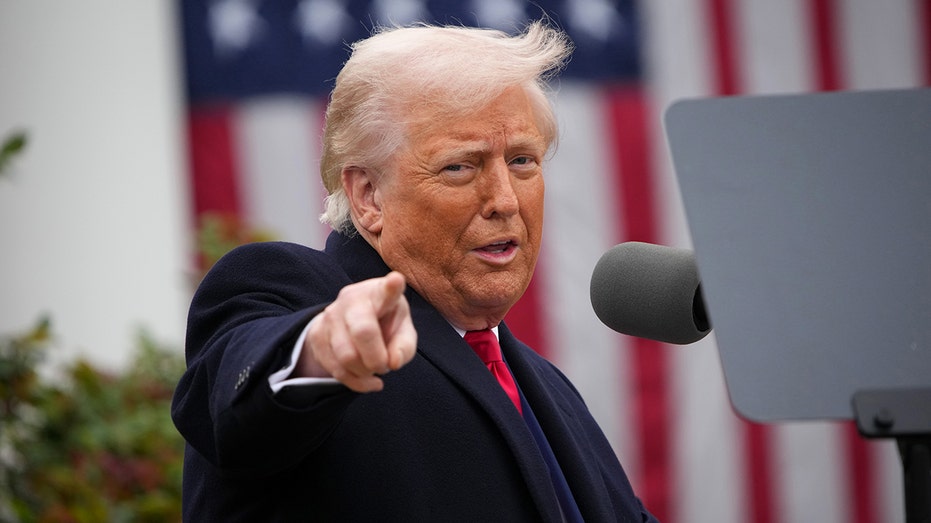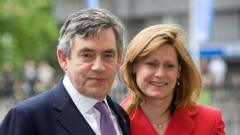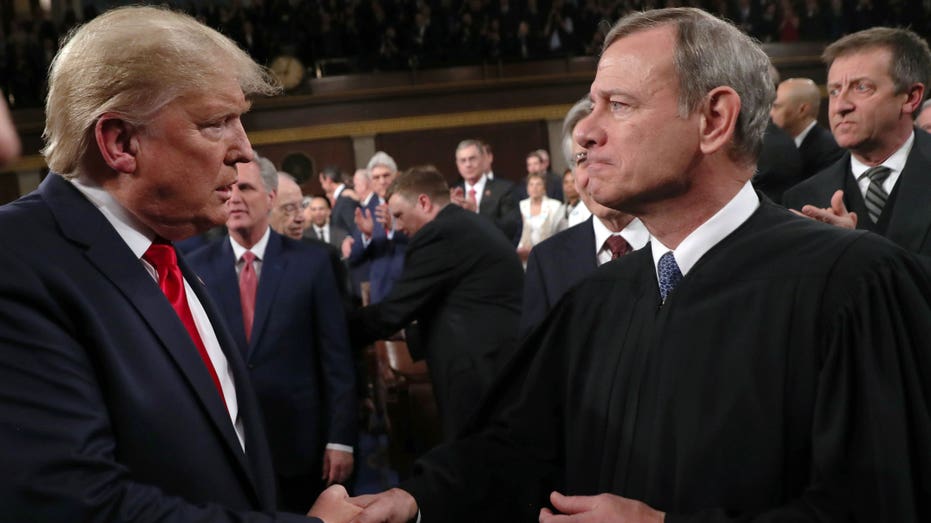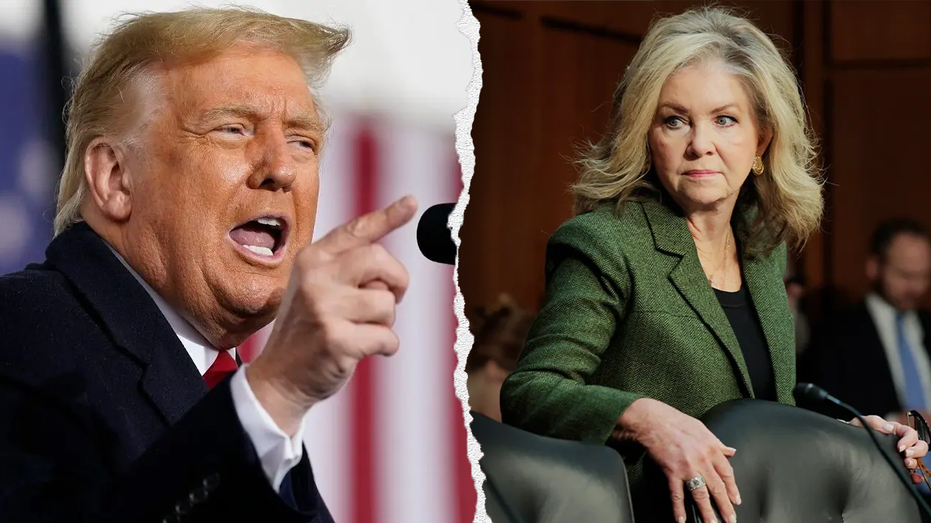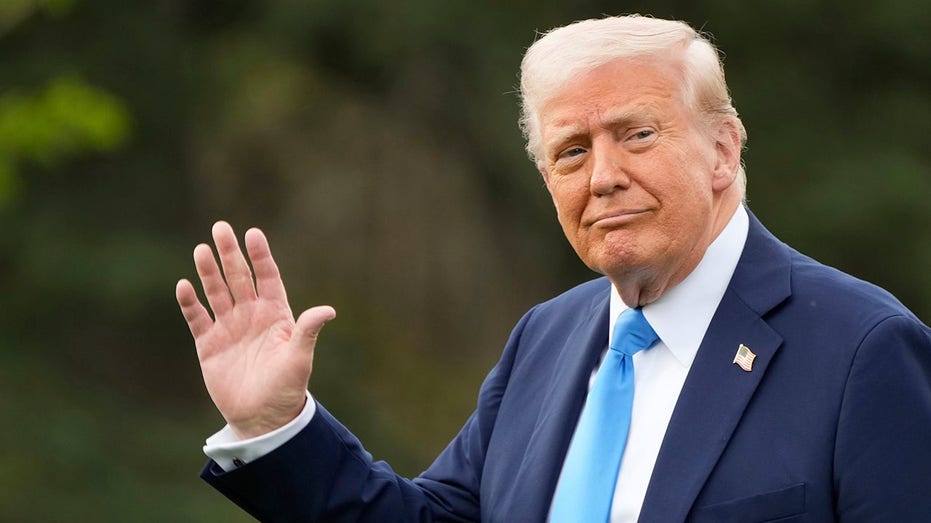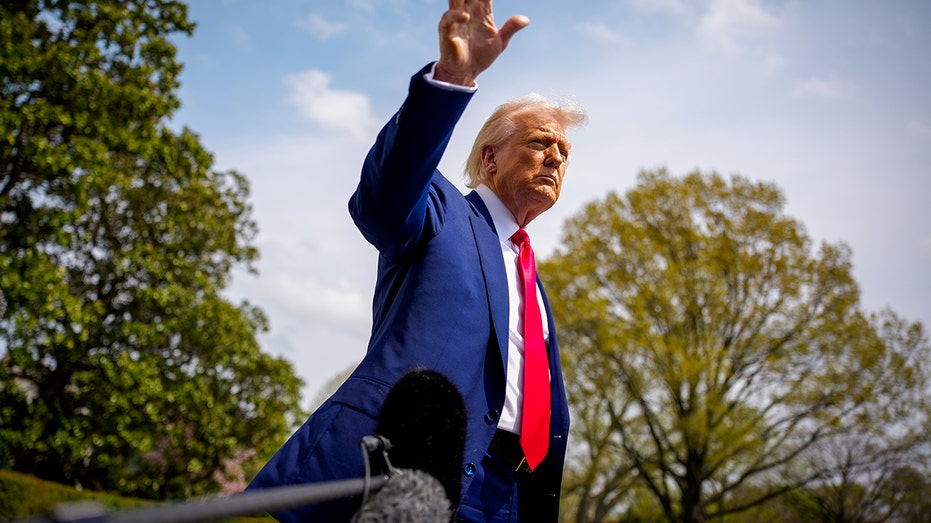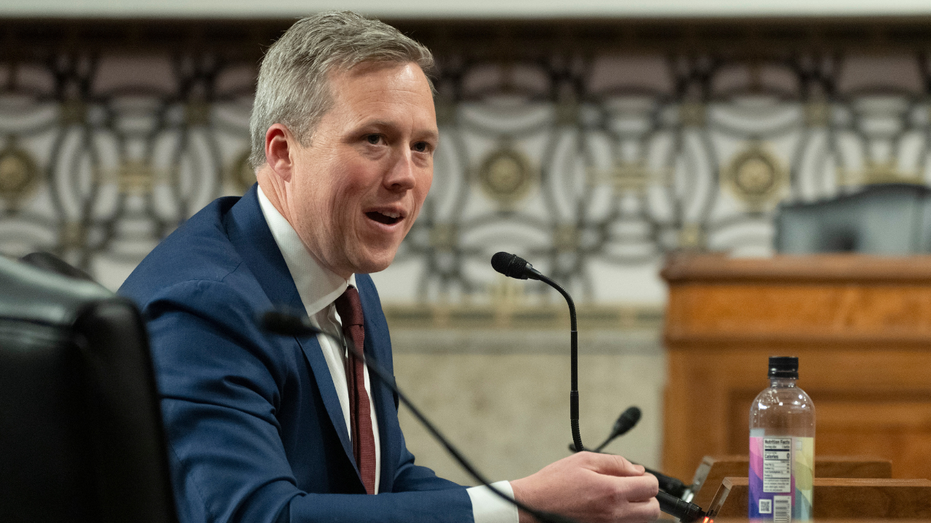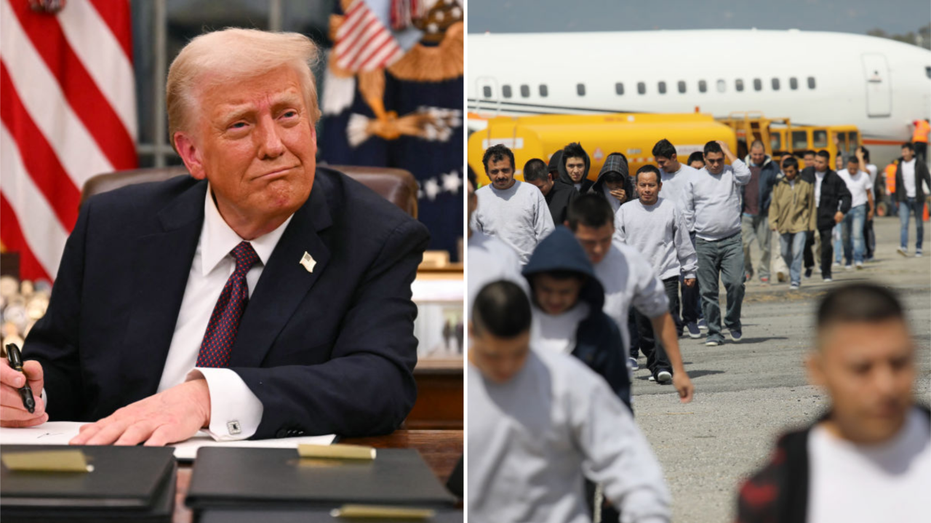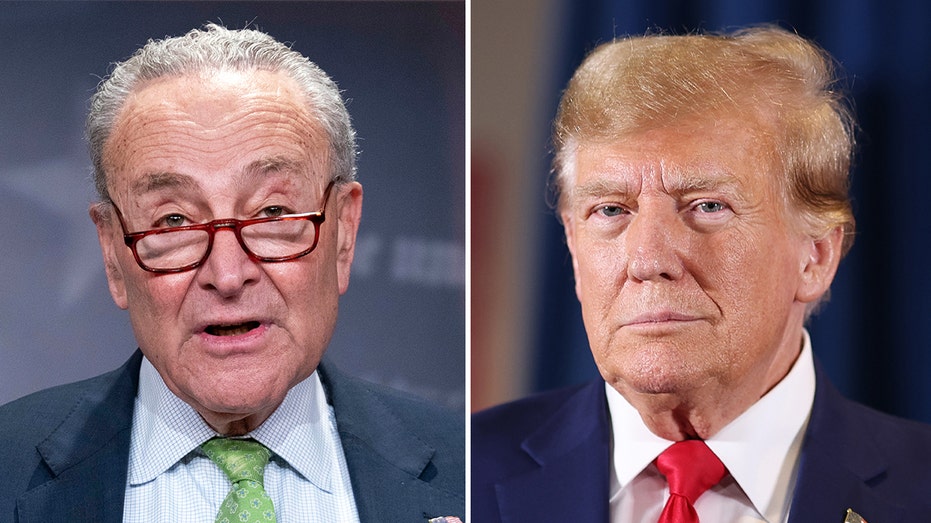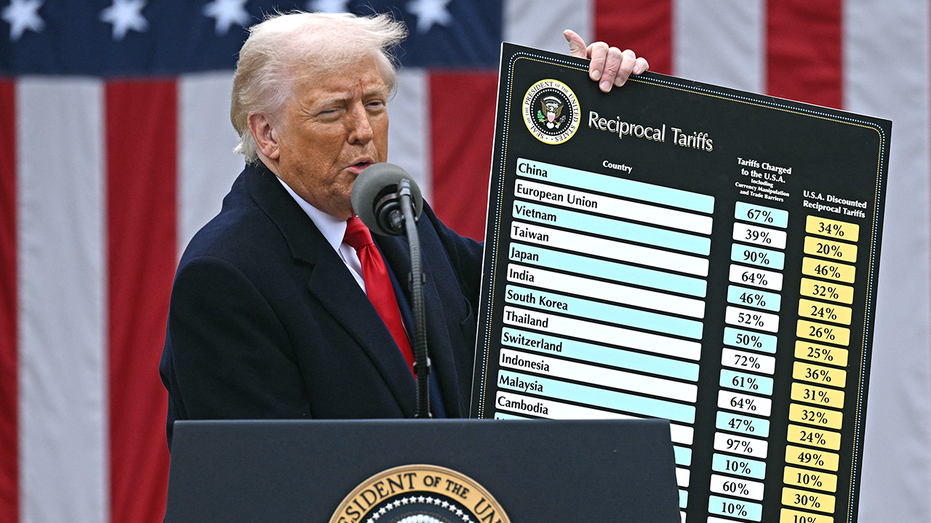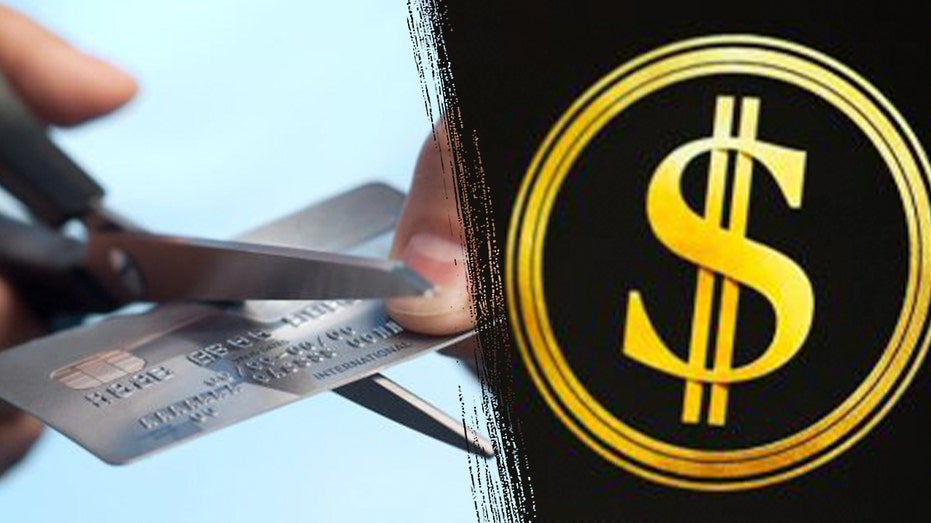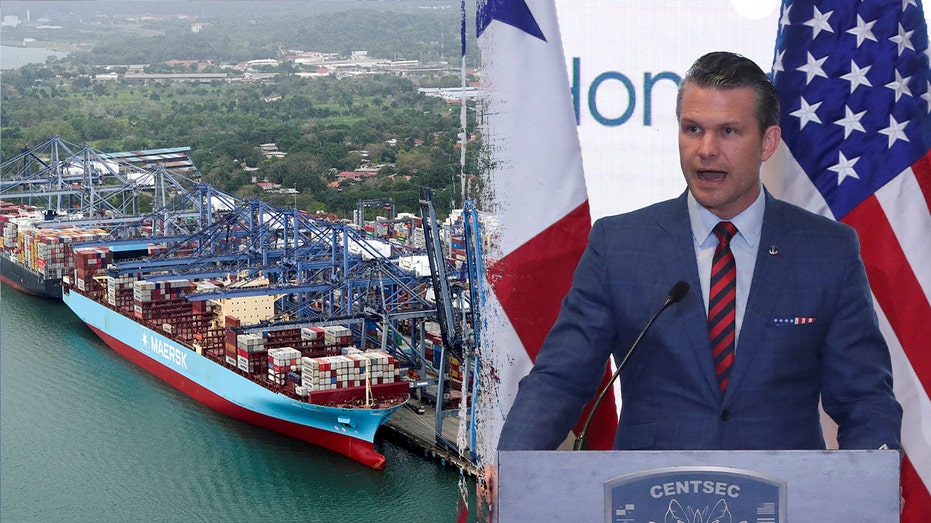The Speaker’s Lobby: 'Whose throat do I get to choke?'
It was a split screen Tuesday morning on Capitol Hill.
One eye on the markets. The other eye on the Senate testimony of U.S. Trade Representative Jamieson Greer.
"Do you think your remarks will alter the markets in any way?" yours truly asked Greer as he walked to the hearing room in the Dirksen Senate Office Building.
"I'm just going to respond to the senators. Be candid as I can be," replied Greer.
TRUMP TRADE REP TAKES BIPARTISAN FIRE OVER TARIFFS AS DEM LAUNCHES BID TO HALT THEM
The public has heard a lot about tariffs from Commerce Secretary Howard Lutnick.
They’ve heard a lot about tariffs from Treasury Secretary Scott Bessent.
They’ve heard even more about tariffs from White House advisor Peter Navarro.
But until Tuesday morning, there was little said about tariffs from the man in charge of the administration’s trade policy: Jamieson Greer.
"The president's strategy is already bearing fruit," testified Greer. "Nearly 50 countries have approached me personally to discuss the president's new policy and explore how to achieve reciprocity."
Democrats were dubious at Greer’s suggestion. Yes, nations may be willing to negotiate. But carving out sophisticated trade agreements with nations just sanctioned by the U.S. takes time.
"You’re telling us you have nearly 50 countries coming to you, approaching you to enter into negotiation, and you think that you can do that overnight?" asked Sen. Catherine Cortez Masto, D-Nev. "You're pretty superhuman here, if that's the case."
TRUMP TRADE CHIEF FACES HOUSE GRILLING ON TARIFFS
Greer tangled with Sen. Maggie Hassan, D-N.H.
"Even if inflation hits Americans pocketbooks at 10% because of these tariffs, then the Trump administration is still going to go charging ahead?" asked Hassan.
"Senator, your hypotheticals are not consistent with the history we have seen with tariffs," replied Greer.
"My hypotheticals are based on the fact that a lot of Americans are looking at their 401(k)’s today and wondering, how much of a lifestyle change they are going to have to have or whether they're going to be able to retire when they plan to," shot back Hassan. "This has been a haphazard, incompetent effort. And it's showing."
After rough showings, the markets actually shot up at the opening bell Tuesday – before Greer spoke. It didn’t appear that anything Greer told senators resonated positively or negatively on Wall Street. But lawmakers were well attuned to the market fluctuations.
Especially as they started to hear from constituents.
TRUMP SAYS HE'LL 'TAKE A LOOK' AT EXEMPTING SOME LARGER US COMPANIES HIT ESPECIALLY HARD BY TARIFFS
Outside the hearing room, Sen. John Kennedy, R-La., offered one of his signature, Bayou homilies to characterize the unfolding trade war.
"God created the world. But everything else is made in China," said Kennedy.
"But senator, isn’t the bigger issue here the question of the uncertainty in the markets and rattling around?" I asked Kennedy.
"Well, there's always uncertainty," answered Kennedy.
"But this is a different type of uncertainty, though, Senator," I countered.
"Is it going to have to have an impact on your capital markets? Well, yes. Duh. And it's not fun. It's very, very painful. Whether this will have a happy ending or a sad ending depends in large part what President Trump does next," said Kennedy.
And that’s the key to the entire enterprise. It doesn’t matter what Lutnick does. Or Bessent. Or Navarro. And not Greer. For better or worse, this is President Trump’s baby. Only he can move markets. And potentially trade deals. And that’s certainly what unfolded in recent days.
Democrats – and some Republicans – excoriated the President for unilaterally imposing the tariffs. Lawmakers asked the reasoning for imposing the tariffs. And they argued that the tariffs should have been an issue which came to Capitol Hill.
"Where was the consultation with Congress about this? Where is the homework? You know, Greek and Roman letters thrown on a plaque doesn't mean a strategy that you've informed Congress on," asked Sen. Maria Cantwell, D-Wash., the top Democrat on the Senate Commerce Committee. "And part of the question is, where's the homework done by the administration to not misconstrue the authority that was given?"
SCHUMER SAYS TRUMP 'FEELING THE HEAT' AFTER RECIPROCAL TARIFF PAUSE
Cantwell may not have received a sufficient answer from the Trump Administration on the rationale. But Sen. Josh Hawley, R-Mo., answered the other part of the question about why the President cut Congress out of the loop.
"Let's not pretend that this is anything other than the President exercising the statutory authority Congress has given him for decades," said Hawley. "Because Congress didn't want to do tariffs, they didn't want to do trade, it was too hot. They wanted the President to hold the hot potato. So now you've got a President who's happy to do that."
Article I, Section 8 of the Constitution declares that Congress has the "Power To lay and collect Taxes, Duties, Imposts and Excises to pay the Debts and provide for the common Defence and general Welfare of the United States."
The Office of the U.S. Trade Representative says the U.S. is a signatory to more than 14 total trade pacts. Congress has ratified several of those in recent years. That includes the "USMCA." That’s a trade pact President Trump pushed – alongside former House Speaker Nancy Pelosi, D-Calif., in 2020 for the U.S., Mexico and Canada. That deal replaced "NAFTA" – the North American Free Trade Agreement – approved by Congress in 1993. Congress also greenlighted "CAFTA" – the Central American Free Trade Agreement – in 2005.
So Congress has engaged in trade somewhat in recent decades. But maybe not as much as it should have.
Greer appeared for a second time on Capitol Hill Wednesday, testifying before the House Ways and Means Committee.
TRUMP PUSHES BACK ON 'REBEL' REPUBLICANS OVER TARIFFS: 'YOU DON'T NEGOTIATE LIKE I NEGOTIATE'
"Any deal that you do, are you going to bring that to Congress for a vote?" asked Rep. Suzan DelBene, D-Wash.,
"We'll do what the law requires. Some of it's consultation. Some requires a vote. So we'll follow the law," replied Greer.
But DelBene pressed Greer on the President using emergency powers on the tariffs. She quoted from the statute.
"It states, ‘the President, in every possible instance, shall consult with Congress before exercising any powers.’" said DelBene. "That didn't happen."
Greer said he called Ways and Means Committee Chairman Jason Smith, R-Mo., and the top Democrat on the panel, Rep. Richard Neal, D-Mass.
"I argue that we did not have that consultation," said DelBene, who sits on the trade subcommittee.
WHITE HOUSE WARNS AGAINST TARIFF RETALIATION, SAYS TRUMP ‘HAS SPINE OF STEEL AND HE WILL NOT BREAK’
But less than two hours later – with Greer still testifying – President Trump announced he was now pausing most tariffs for three months. But still imposing steep tariffs on China.
Rep. Steven Horsford, D-Nev., was apoplectic.
"He announced it on a tweet?" asked an incredulous Horsford of Greer. "WTF? Who's in charge?"
"The President of United States is in charge," stated Greer.
"And what do you know about those details?" countered Horsford. "It looks like your boss just pulled the rug out from under you."
Horsford later asked if what the President executed was "market manipulation." Greer said it wasn’t.
HOUSE DEMOCRAT SAYS HE'D VOTE TO PROTECT TRUMP'S TARIFF PLAN, WORRIES WHITE HOUSE WILL STAND DOWN
So when the hearing adjourned, yours truly and Nikole Killion of CBS pursued Greer to get more clarity on the President’s new strategy.
"Can you explain why you were caught flat-footed about the change in the trade policy? Were you aware of any of this?" I asked Greer before he stepped into an anteroom.
We resumed the quest in the hall.
"Were you not told about this?" I asked.
"Did you know before your testimony?" added Killion.
"I'll just refer you to my testimony," said Greer.
"Your testimony did not reflect what it was implemented during the hearing," I followed up.
"I'll just refer you to my testimony," Greer repeated.
"But that's inconsistent with the decision of the president," I said.
An aide to Greer then intervened.
"I think the Ambassador was extremely clear in his testimony about what was going on, and the president could make the choice," the aide interjected.
"Explain why you don't think that this was market manipulation. You said it wasn't," I followed up.
HOUSE CONSERVATIVES READY TO OPPOSE SENATE GOP FRAMEWORK FOR TRUMP TAX CUT PACKAGE
"Were you aware that there would be a pause before you came here to Capitol Hill? Yes or no? Yes or No, sir?" continued Killion.
Greer then disappeared down a winding staircase in the Longworth House Office Building.
Let’s shift back to the Senate hearing on Tuesday with Greer.
Sen. Thom Tillis, R-N.C., could face a competitive reelection bid next year. He asked a pointed question to Greer.
"Whose throat do I get to choke if this proves to be wrong?" asked Tillis.
"Well, Senator, you can certainly always talk to me," replied Greer.
"So if you own this decision, I'll look to you to figure out if we're going to be successful," said Tillis. "If you don't own the decision, I'm just trying to figure out who's throat I get to choke if it's wrong."

